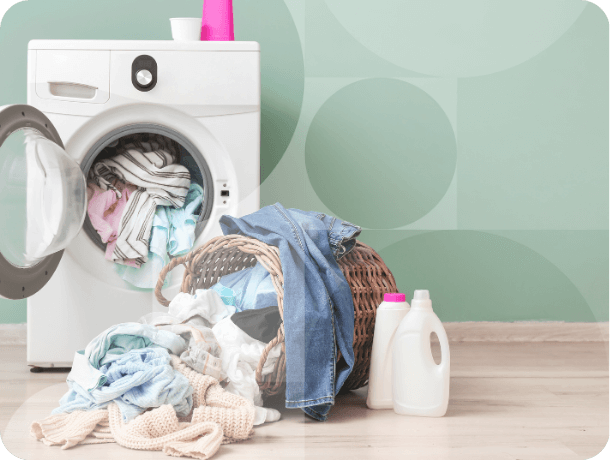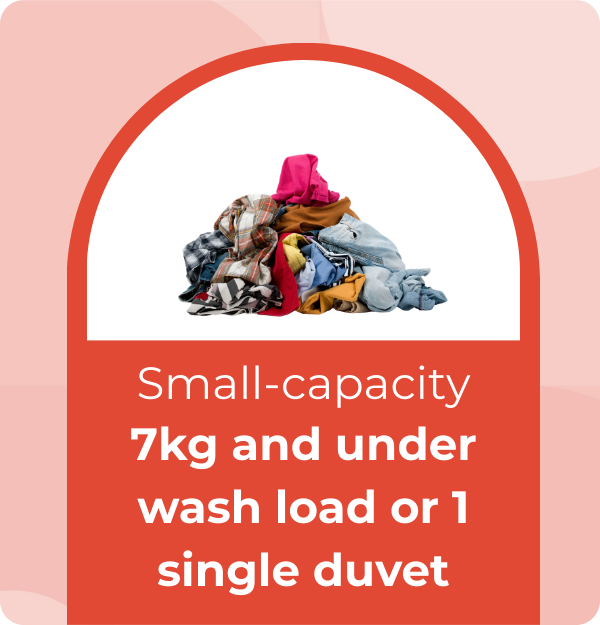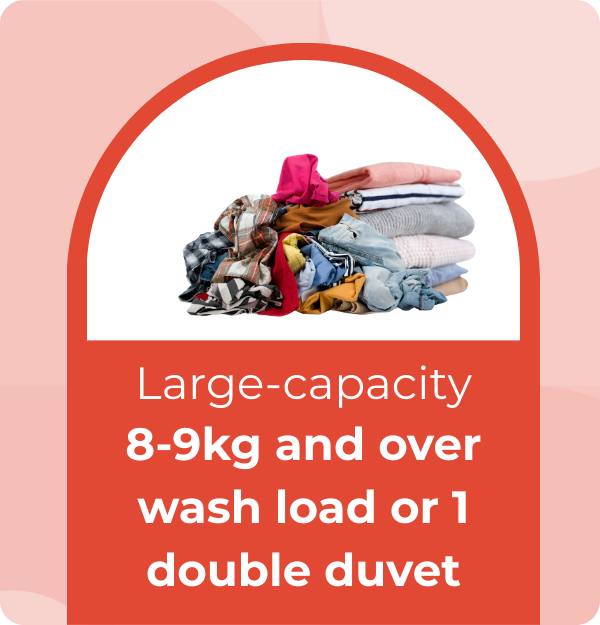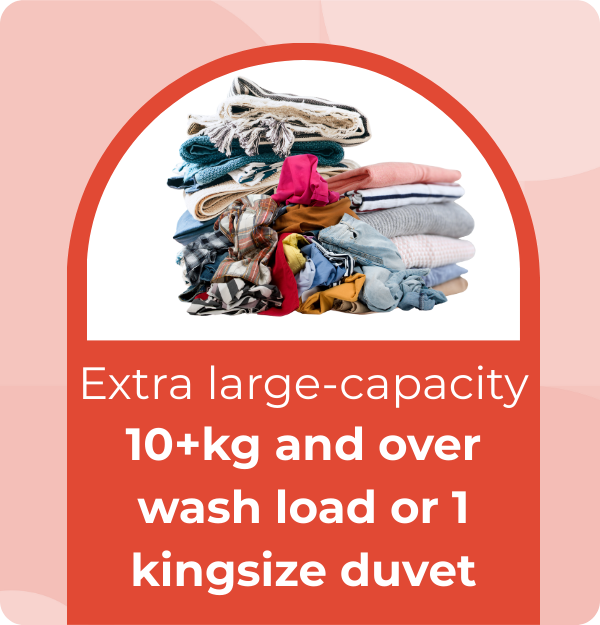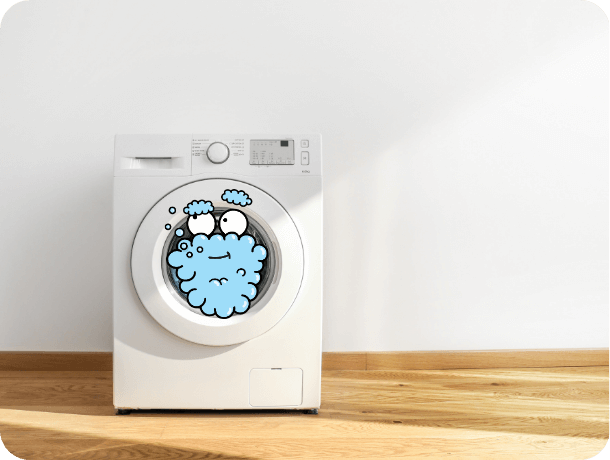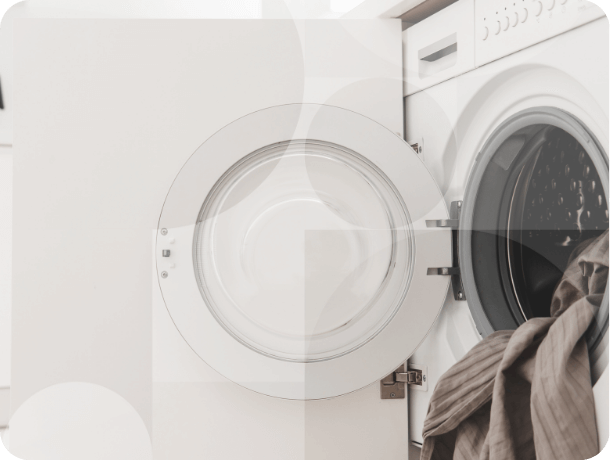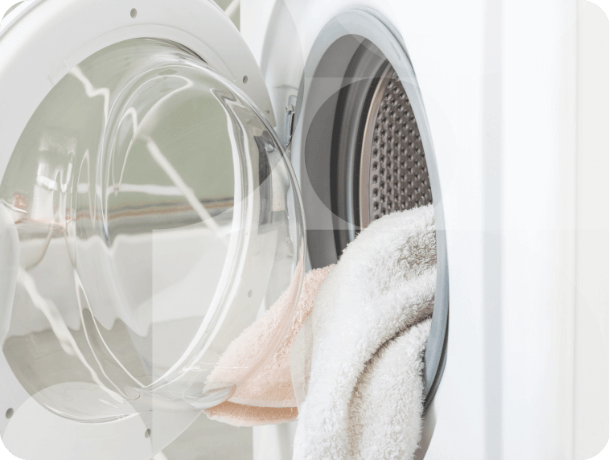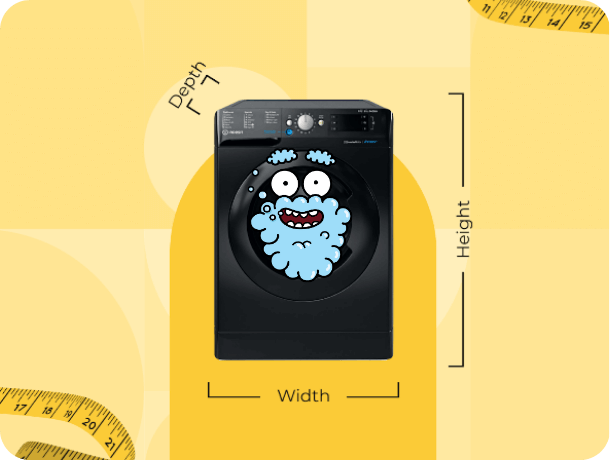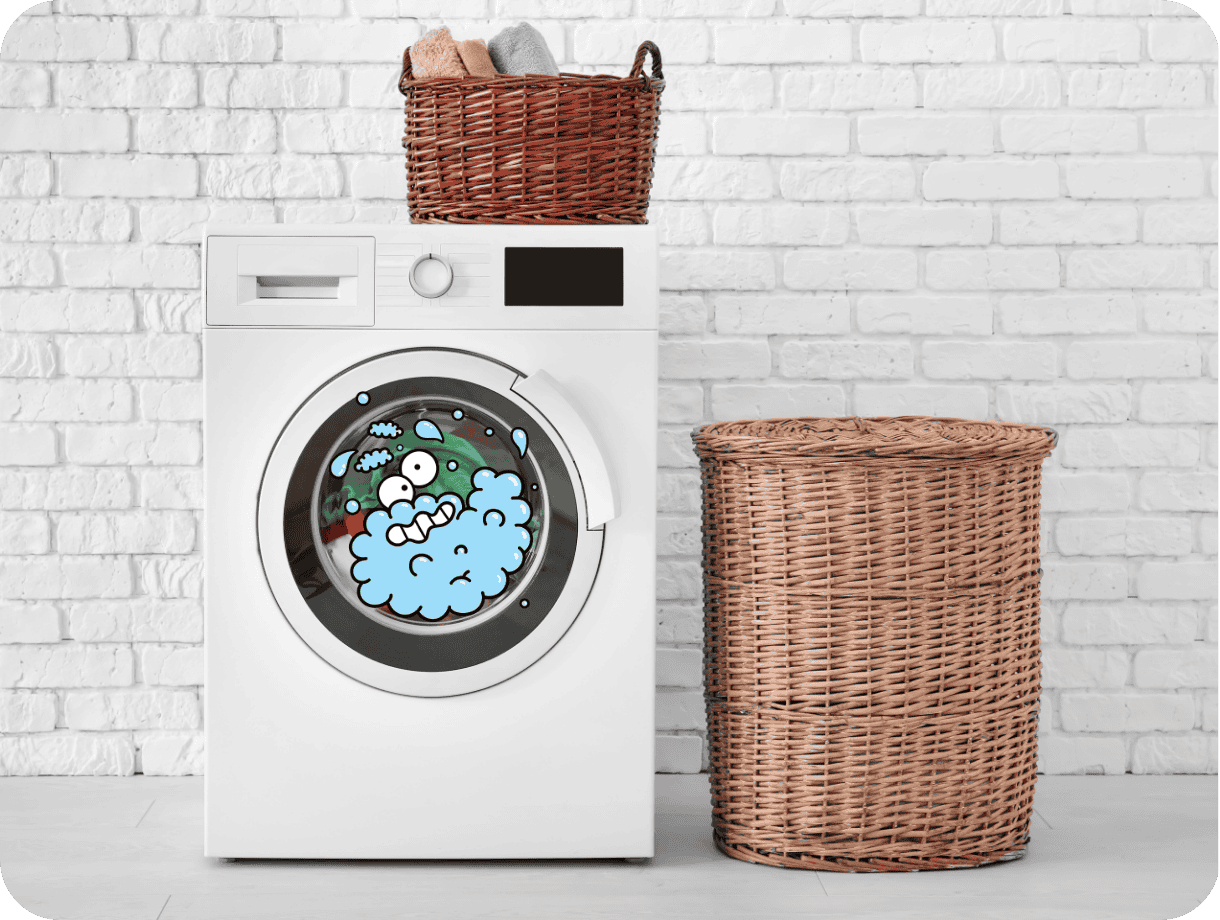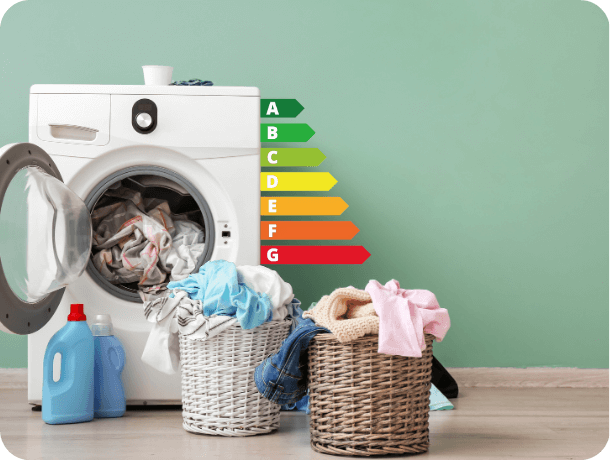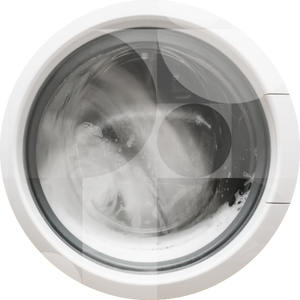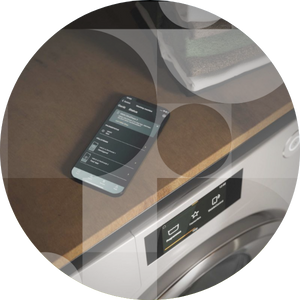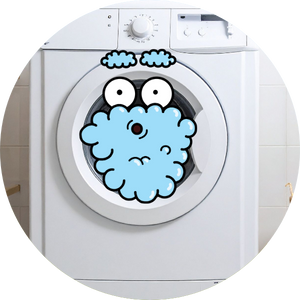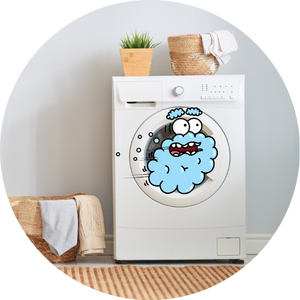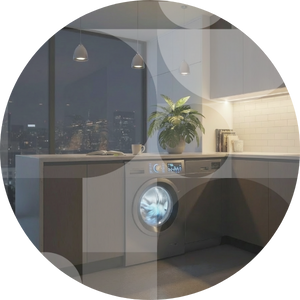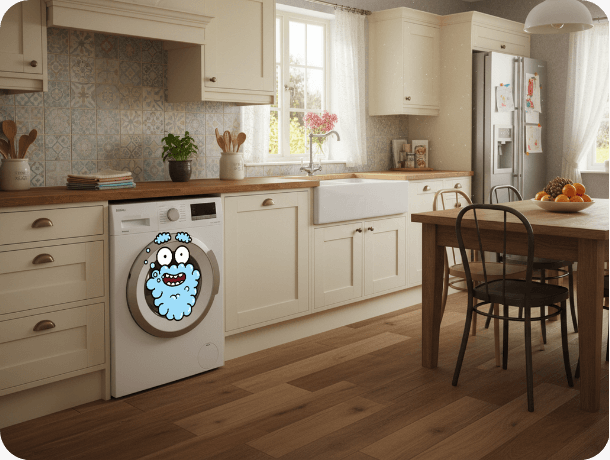Washing machine buying guide
Everything you need to know to find the perfect washing machine for your home and lifestyle...
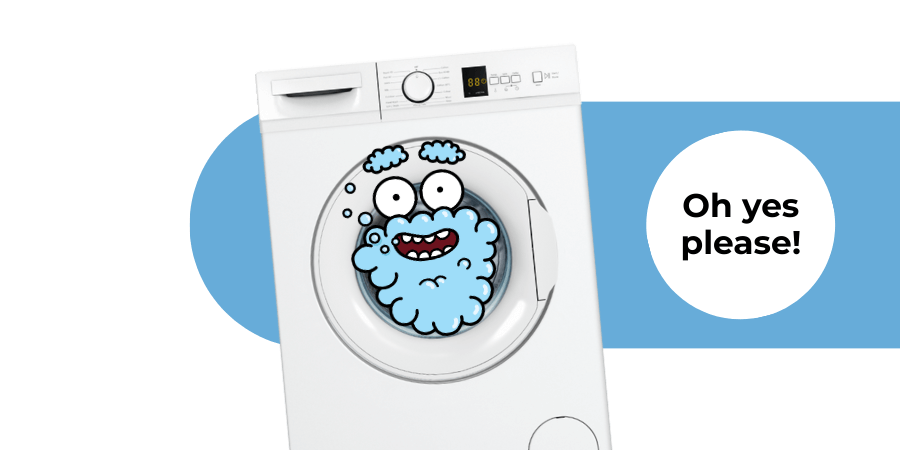
My tip to find your perfect capacity…
As a guide, 1 kg of laundry is roughly equivalent to five adult t-shirts. Think about how much washing you do each week. Single occupants or couples usually have smaller, less frequent loads than larger families.
Something to remember when measuring your space…
You’ll need to allow room for your leads and hoses at the back of the machine and room for the door to open, so keep this in mind when measuring your space. This is especially important with integrated machines, where there needs to be room at the front for the cupboard door to close comfortably.
Most people will simply house their new machine where their old one was, which is often the best place but if you are considering rearranging, just remember there needs to be a cold-water feed, an electrical socket and a waste connection within 1.5 metres of the appliance.
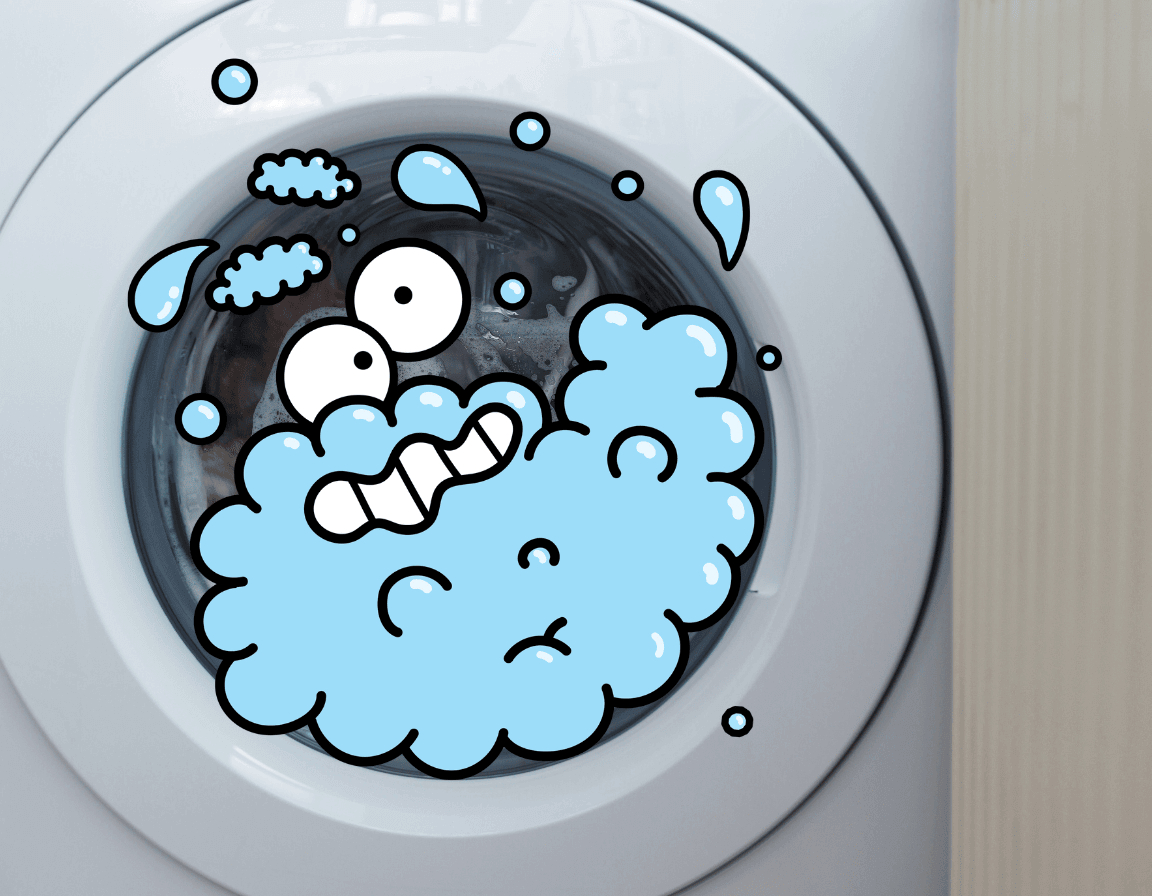
Quick wash
Find yourself rushing around to find clean clothes before going out? Look for a washing machine with a Quick Wash feature. A quick wash will have a small load of your clothes clean and refreshed in just 15 minutes. Quick Wash also use less water, up to 30% on average so you’ll be saving yourself money versus a full cycle.

Sensor guided wash
If you often find yourself wondering what setting to do your washing on, some machines can do the thinking for you. Washing machines with sensor guided washing automatically use the right amount of water, at the right temperature and perfect spin speed for what you’ve put in.
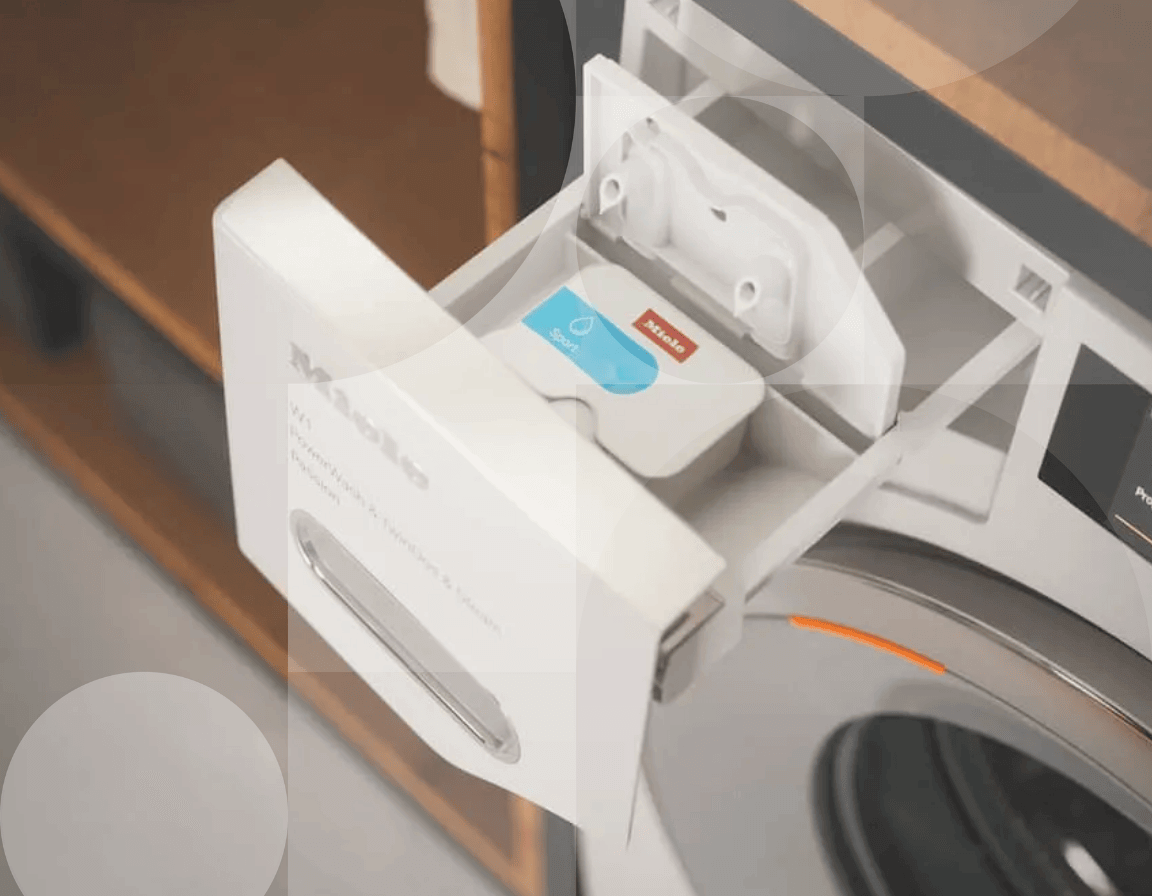
Auto dosing
Take away the guesswork of how much detergent you need to use with auto-dosing washing machines. Keep a detergent compartment filled and the machine will add the right amount for the wash programme and load.
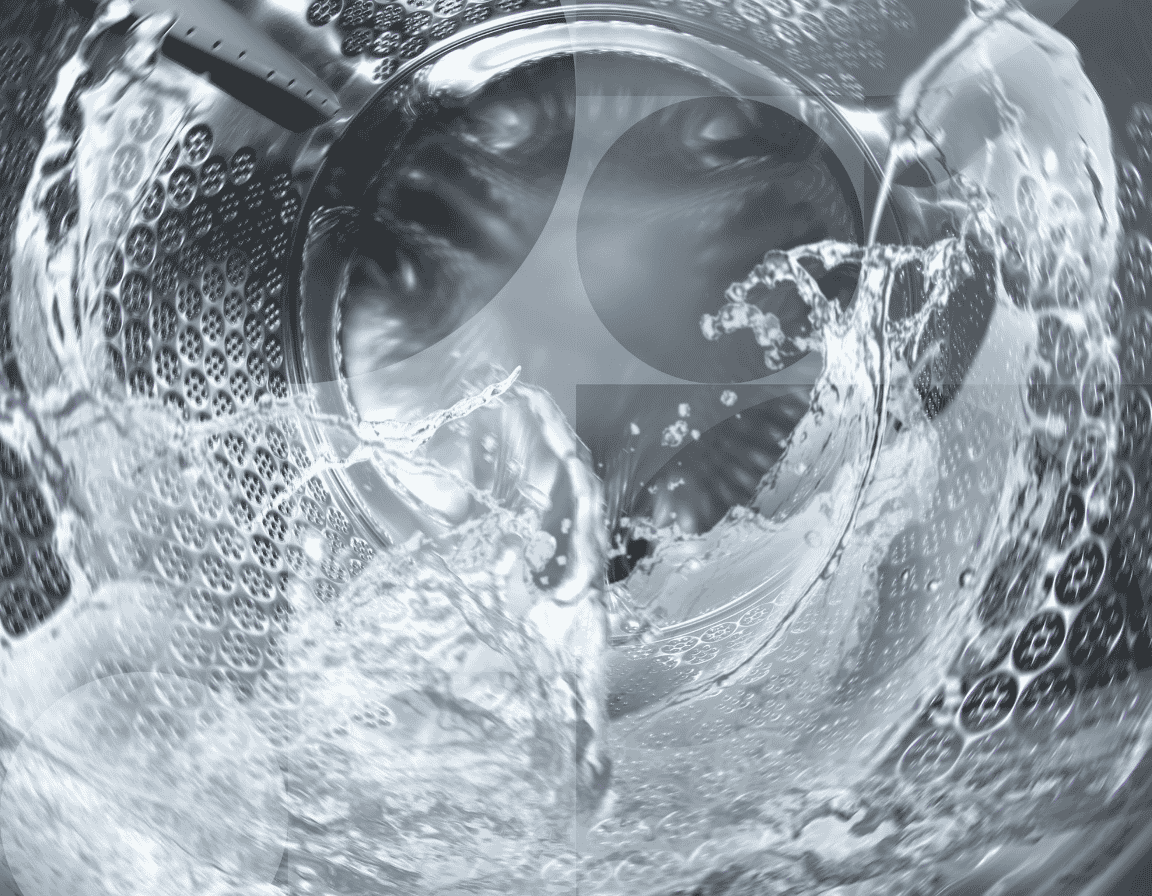
Self-cleaning
Many machines come with self-cleaning programmes, helping to remove build-ups of detergent, fabric softener and dirt. Your clothes will be fresher when washed in a clean machine and regular cleaning can extend a machine’s lifespan.

Steam function
If you’re a messy eater, have allergies or just hate ironing, a steam function could be for you. Steam makes stains easier to tackle, eliminates allergens and bacteria, and helps reduce creases.
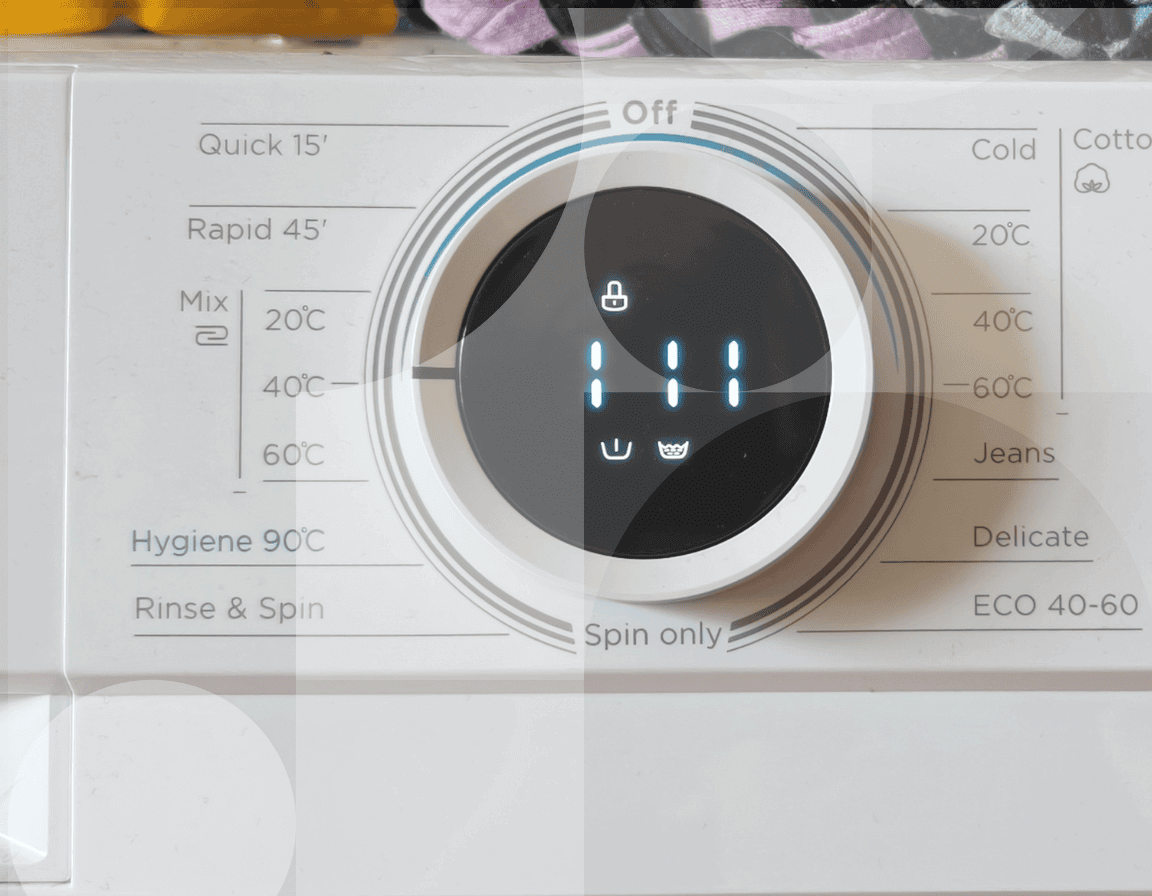
Wash programmes
Your washing machine comes with ready-made programmes that know exactly how to wash different types of clothes. Whether it's silks, towels or football kits, there’s already a perfect setting ready to go.
Some sage advice...
The key is thinking about what really matters to you, so you can focus on the features that will make a real difference in your routine.
Which washing machine should I buy in 2025?
What size washing machine do I need?
• 1-2 people: 5-7kg capacity
• 3-4 people: 7-8kg capacity
• 4+ people: 8-9kg capacity
• 5+ people: 10kg or larger capacity
A larger drum also allows bulky items like duvets and curtains to wash more effectively, even in smaller households.
What's the difference between integrated and freestanding washing machines?
Integrated washing machines are built into kitchen units with a door panel that matches your kitchen cabinets. They're more aesthetically pleasing but can be harder to access for repairs.
What washing machine features should I look for?
• Quick wash programs for lightly soiled items (15-30 minutes)
• Delay start timer to run cycles during off-peak energy hours
• Variable spin speeds for different fabric types
• Sensor guided wash to only use the right amount of water at the right temperature
• Steam functions for better stain removal and reduced wrinkles
• Smart washing for WiFi connectivity and remote monitoring
How energy efficient should my washing machine be?
• Cold wash programs that clean effectively at lower temperatures
• Automatic load sensing to adjust water usage
• Eco programs that use less energy (though take longer)
The energy label also shows water consumption per cycle and spin efficiency ratings.
How long should a washing machine last and what warranty should I expect?
Regular maintenance like cleaning the filter, using appropriate detergent amounts, and running monthly cleaning cycles will extend your machine's lifespan significantly.






